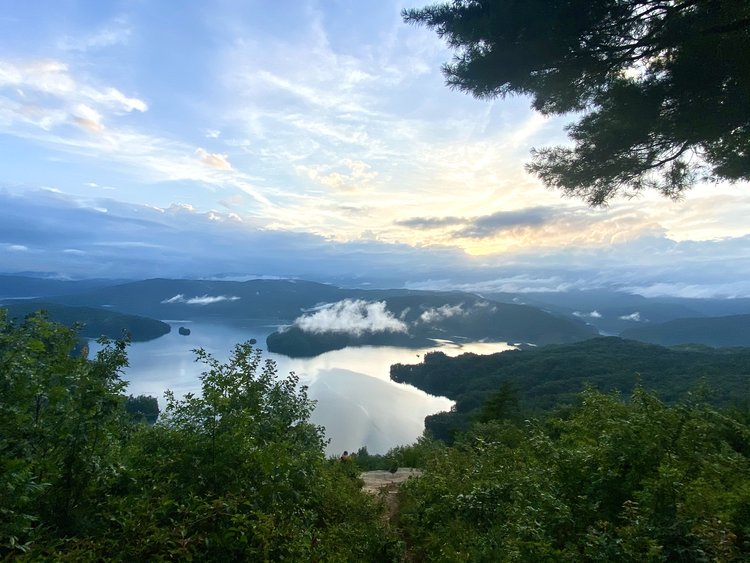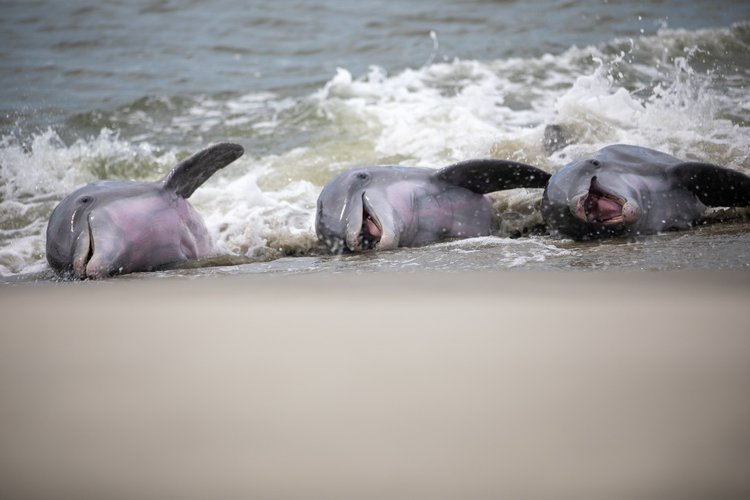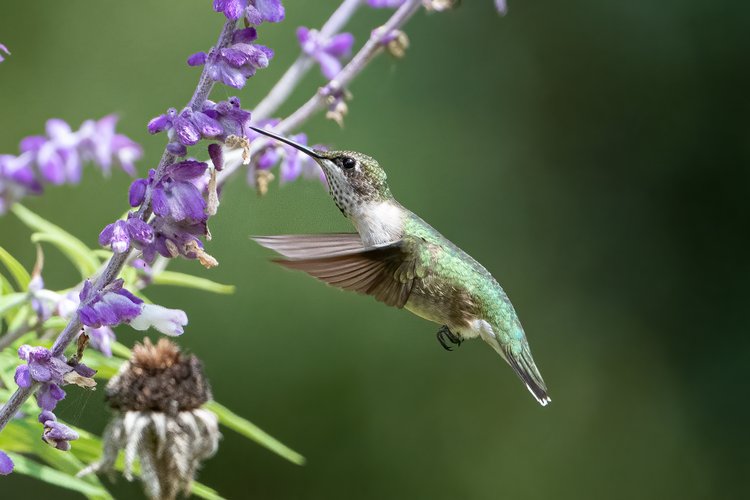The General Assembly, 124th Session, adjourned sine die at 5:00 pm on May 12 thus concluding their work in the second year of a two-year session. A sine die resolution passed by both chambers governs what can and cannot be considered by the Legislature in post-session meetings. Any bills not passed by the adjournment deadline, unless specifically included in the sine die resolution, are no longer up for consideration and will have to be re-introduced in 2023. Bills that are pending in a Conference Committee are still active as is the 2022-2023 Annual Appropriations Joint Resolution (budget bill) that authorizes and allocates state spending.
All in all, the 2022 Legislative Session proved to be beneficial to our state’s wildlife, particularly shore birds, and good to conservation and land protection initiatives some of which are highlighted below. And, there were some significant changes in legislative leadership in both the Senate and the House.
Leadership Changes in the General Assembly
The 2022 Session convened on January 11 with a new President and presiding officer of the Senate and a new Chairman of the all-powerful Senate Finance Committee. Senator Hugh Leatherman, longtime Senator and Chairman of the Senate Finance Committee passed away in November. Senator Harvey Peeler of Cherokee County, then President of the Senate, was next in line to become Chairman of Senate Finance. When the Senate held a one-day organizing session on December 6, 2021, Senator Peeler resigned from his post of President of the Senate to assume the duties as Chairman of the Senate Finance Committee. Subsequently, Senator Thomas Alexander of Oconee County, Chairman of the Senate Labor, Commerce, and Industry Committee, relinquished his Chairmanship and was elected President of the Senate, the presiding office of the upper chamber. Senator Tom Davis of Beaufort then became Chairman of the LCI Committee.
On the House side of things, Speaker of the House Jay Lucas announced in mid-March that he would not seek reelection in November. In late April he announced he would resign the Office of Speaker effective at 5:00 pm on May 12, the last day of the 2022 session. Speaker Lucas set April 28 as the date the House of Representatives would elect a new Speaker for the remainder of the year and beyond. House Ways and Means Chairman Murrell Smith, a twenty-year Representative from Sumter County and Speaker Lucas’ favored successor, was elected by acclamation to become the next Speaker of the House of Representative taking office on May 12 at 5:01 pm. With Smith’s elevation to Speaker, the Chairmanship of the powerful Ways and Means Committee became vacate and Rep. Gary Simrill of York County, the current House Majority Leader, was elected unanimously by the members of the W&Ms Committee to serve as its next Chairman. Since Rep Simrill is not seeking reelection this year, he will serve as Chairman of Ways and Means through the end of the year and a new Chairman will be selected in 2023.
Legislation and Issues SCWF Advocated for During the 2021-2022 Session
S.152, the County Green Space Sales Tax Act
(passed and signed into law by Governor on 5/16/22)
This bill, authored by Senator Tom Davis, overwhelmingly passed the Senate in 2021 and was sent to the House of Representatives where it was referred to the House Ways and Means Committee. The legislation would permit county governments, upon a successful county-wide referendum, to impose up to a 1 percent sales and use tax specifically earmarked for the acquisition of land and green spaces. S.152 would provide counites a significant tool, and the financial ability, to protect and preserve iconic lands and green spaces threatened by ill-conceived and ever-increasing development across our state. The House Ways and Means Committee did not take up this legislation until late April but, after two hearings, unanimously reported S.152 out favorably and on to the House calendar. On May 12, the last day of the legislative session, the bill passed the House and, because of a technical amended offered in the W&Ms Committee, it needed to return to the Senate for their concurrence. With mere hours to spare before adjournment, the County Green Space Sales Tax Act was given concurrence by the Senate, ratified and has now been signed into law by Governor McMaster.
SCWF strongly supported this legislation and tirelessly advocated for passage, working closely with Senator Davis, House Ways and Means Committee Chairman Smith and others to ensure S.152 made it over the finish line this session. To view the final version of the legislation, click on the following link https://www.scstatehouse.gov/sess124_2021-2022/prever/152_20220511.htm
SC Department of Natural Resources (SCDNR) Regulations Applicable to Specific Properties (Shorebird Regs)
Document #5070 (regulations approved)
The SC Department of Natural Resources recently proposed new regulations that would restrict certain activities on specific properties that are DNR owned or managed. These regulations were unanimously approved by the DNR Board last year and were forwarded to the General Assembly for their review and consideration (all promulgated regulations or changes in existing regulations must be approved or rejected by the Legislature). Among other prohibitions, DNR has proposed to ban dogs, either completely or during shorebird nesting and migration season, from numerous barrier islands where threatened and endangered bird species nest and migrate. SCWF supported these new regulations which will add a layer of protection for these shorebirds during a critical time in their life. The presence of dogs on these remote properties is a direct threat to shorebird activity and to the places they depend on to nest and rest during their long migration journey. The House Regulations and Administrative Procedures Committee in March unanimously approved these regulations but there were some objections when the regs were considered by the Senate Fish, Game and Forestry Committee, Chaired by Senator Chip Campsen. SCWF and Audubon SC directly engaged Chairman Chip Campsen and other committee members to work out a compromise agreement that would satisfy Committee concerns but address SCDNR, SCWF, Audubon SC and others’ desires to limit canine access to these barrier islands. Ultimately, the proposed regulations were amended to a hybrid approach that would outright ban dogs on certain barrier islands while allowing limited access during non-nesting and non-migratory periods (April 1-August 30) on a few islands with restrictions on where dogs can roam with their owners. These new regulations will become effective on May 27, 2022 and the SC Department of Natural Resources plans on an aggressive educational campaign to inform the public of these changes and will erect appropriate signage on all affected areas. SCDR’s law enforcement division will step up their patrol of these areas as well.
To review a final version of the regulations and see which SCDNR properties are affected, Click on this link https://www.scstatehouse.gov/regnsrch.php and type 5070 in the “document number” box then click on “retrieve document”.
H. 5150, The 2022-2023 Annual Appropriations Bill
(referred to House-Senate Conference Committee)
On March 21, the House Ways and Means Committee favorably reported out their version of the FY 2022-2023 budget. Under the leadership of Chairman Murrell Smith, the Ways and Means budget recommended a number of funding measures that would significantly increase support for conservation and land protection in South Carolina. Most notably was a $30M earmark in non-recurring, one-time funds to the SC Conservation Bank for grants and awards; $68M to the SC Department of Natural Resources for land acquisition and $87.5M to the newly created SC Office of Resilience for flood plain acquisition and restoration and to fund the completion of their legislatively-mandated statewide resilience planning project. The House of Representatives overwhelmingly passed the 2022-2023 budget, as recommended by the Ways and Means Committee, on March 28 and sent it to the Senate for their consideration.
Regrettably, the Senate Finance Committee led by newly installed Chairman Harvey Peeler took a meat ax to some of the recommendations from the House which included reducing the Conservation Bank’s $30M one-time money to $5M; reducing the SCDNR’s $68M for land acquisition to $30M and drastically adjusting downward the SC Office of Resilience non-recurring funding from $87.5M to $1.00. The Senate Finance Committee’s amended budget was passed by the Senate on April 28 by a vote of 42-4 and sent back to the House. The House subsequently amended the Senate version back to the original House version and the Senate non-concurred with the House amendments thereby setting up a Conference Committee of three members from each chamber to hash out the differences and report a compromise bill back the House and Senate when they return on June 15 to vote on final passage of a state budget.
SC Wildlife Federation supports the House version of the State Appropriations Bill for FY 2022-2023, which begins July 1, 2022, and we are hopeful the House-Senate conferees will accept and report out a bill that preserves the House-passed funding recommendations for conservation and land protection.
H.4408 American Rescue Plan Act Authorizations
(passed)
This is the House-authored and passed version of the bill that authorizes expenditures from SC’s $2.4B share of federal revenue from the American Rescue Plan Act. Both House and Senate versions included similar expenditures for broadband deployment throughout the state; water and sewer projects under the State Rural Infrastructure Authority; and money to fund a new DHEC Public Health and Environmental Testing Lab, among other items. The House version also included $100M for the SC Office of Resilience (SCOR) for flood plain acquisition and restoration whereas the Senate version did not include funding to SCOR. The House version eventually prevailed and the SCOR funding was approved. SCWF was a strong advocate for the original legislation that created the Office of Resilience in 2020 and we have maintained our commitment to the mission of SCOR. We therefore supported the ARPA funding to SCOR as recommended by the House and applaud the House Ways and Means Committee, and the House as a whole, for insisting upon their version of the ARPA funding authorization.
H.4831 The “Wind” Bill
(passed but in Conference Committee)
This legislation, introduced by Rep. Jason Elliott (Greenville) directs the Department of Commerce to conduct an economic development study “to evaluate the state’s business advantages, economic climate, workforce readiness, and any other relevant state assets to create a roadmap for South Carolina to effectively compete in attracting offshore wind energy supply chain industries to the State”. The bill passed the House by a large margin and was eventually amended and passed the Senate a day before adjournment. The House subsequently voted to non-concur with the Senate amendments so the bill has been referred to a House-Senate Conference Committee to iron out the differences between the two chambers. The conferees were not able to meet before May 12 so they will confer post-session and issue a conference report that will be voted on when the Legislature returns on June 12 to give final passage of the state budget. SCWF supported this bill which will hopefully spur more clean renewable energy vendors attracted to South Carolina and job creation in that sector.
H.3120, the so-called “Trails Bill”
(failed to pass)
This legislation would allow a one-time income tax credit to private landowners who encumber their property with a perpetual recreational trail easement and right-of-way. SCWF supported this bill throughout the legislative process. The bill passed the House in early April but lingered in the Senate. A Senate Finance Subcommittee hearing was finally held on May 9, just days before the May 12 adjournment deadline. Regrettably, with little time to get the legislation through a full Senate Committee hearing and on the Senate floor for a vote, H.3120 did not receive further consideration in the Senate before adjournment which killed the bill for the year and the legislation will have to be reintroduced next year.
H.3892, Mining Activity Near Parks/Green Space
(failed to pass)
House bill H. 3892 would prohibit the SC Department of Health and Environmental Control (DHEC) from issuing a certificate of exploration, general mining permit, operating permit or any other permit for exploration or mining activities on affected land within two miles of any park, preserve, green space, or other protected natural area owned or managed by the United States, the State, a county, a municipality, another political subdivision, or any other public entity. This legislation would prohibit DHEC from issuing permits to resource extraction companies or any other companies for the purpose of engaging in mining activities within two miles of parks and/or greenspaces. The bill was sponsored by Representatives Yow and Hewitt and had numerous House cosponsors. H.3892 received a favorable subcommittee hearing in the House Agriculture, Natural Resources and Environmental Affairs Committee earlier in February but was never passed out by the full Committee. One issue that held up the bill is the definition of a park or green space since the original language offer little specificity. Sponsors worked with a number of stakeholders in an effort to come up with a reasonable and acceptable definitions of these areas. SCWF supported this bill and advocated for its passage this year. South Carolina’s mining laws haven’t been updated since the 1970s and this bill would add a significant layer of protection to our parks, sensitive wildlife areas, nature preserves and other similar properties from encroachment by mining operations. As the Post and Courier recently stated in an editorial, “Growth is a sign of success, but it also comes with problems that can threaten our quality of life. Rep. Hewitt’s bill (H.3892) would provide some important safeguards. We urge lawmakers to make it as strong as they can and pass it.”
H.3892 was side-lined for the remainder of the session after the initial subcommittee hearing in the House. No one could agree on appropriate definitions and numerous objections were heard from some in the industrial and mining sectors. While the goals of the legislation were noteworthy, the bill had some serious problems. Hopefully, the issue will be revisited in 2023 and a more thoughtfully constructed bill will be introduced that everyone can get behind.
H.4614, Sunday Hunting Legislation
(failed to pass)
While hunting on Sundays is permitted on private lands, it is currently prohibited on Wildlife Management Areas (WMAs) owned, leased or managed by state agencies such as the South Carolina Department of Natural Resources (SCDNR). House bill H.4616, authored by Rep. Bobby Cox of Greenville, originated as a simple bill that stated, “A person authorized to hunt or take wildlife on wildlife management area land may hunt on a Sunday”. Upon introduction, the bill was referred to the House Agriculture, Natural Resources and Environmental Affairs. The Committee held numerous hearings on the bill where supporters and opponents of Sunday hunting on WMAs were heard. The Committee hearings revealed not only a wide difference of opinion on this issue amongst Committee members but the public as well. Eventually, the House Agriculture Committee reported out a version of the bill, substantially different from the original language, that directs the SCDNR to promulgate regulations to “repeal” the prohibition of Sunday hunting on WMAs and to “allow Sunday hunting on wildlife management areas owned by the Department or leased from the USDA Forest Service”. The Committee directed the SCDNR to report their recommended regulations back to the Committee for its review no later than December 31, 2022. The bill passed the House on May 7 and was sent to the Senate but never received a hearing in the Senate Fish, Game and Forestry Committee and therefore never made it to the Senate floor for a vote before the May 12 adjournment. Sunday hunting on WMAs became a very controversial topic toward the end of the legislative session. The conventional wisdom supports opening up selected WMAs strategically located across the state to Sunday hunting but preserves the Sunday hunting prohibition on other WMAs s that are used more frequently by hikers, bikers, for family outings, etc… It is also the opinion of many that SCDNR, although not now legislatively mandated to do so, will on their own draft Sunday hunting regs during the “off session” and present them to the legislature next year. Stay tuned!
H.4956 and S.1039 The Conservation Enhancement Act
(failed to pass)
Since the inception of the SC Conservation Bank in 2004 to its reauthorization in 2018, a portion of the deed recording fee collected by the state was the primary source of funding for the Bank’s grants and awards program. The legislation that reauthorized the Bank dropped the deed recording fee funding mechanism in favor of an annual appropriations from the Legislature. The Conservation Enhancement Act, which was introduced in late February and sponsored in the House by Ways and Means Committee Chairman Murrell Smith and in the Senate by Fish, Game and Wildlife Committee Chairman Chip Campsen, would have restored the dedicated stream of funding to the Bank via deed recording fee revenue that the Bank had previously enjoyed for 14 years. Additionally, Senator Campsen’s bill, S.1039, would have created a “carve-out” from existing sales taxes collected by the state from the sale of outdoor recreational equipment (North American Industry Classification System with code 451110) that then would be credited to a Natural Resources Enhancement Fund account established in the State Treasury. The sales tax revenue accumulated in the Natural Resources Enhancement Fund would be dedicated for the purpose “of capital improvements on parks, forests, wildlife management areas, and heritage preserves that are owned, leased, or managed for public use by an agency of the State (SCDNR, Forestry Commission and SCPRT). In the Senate bill capital improvements was defined as “activities that require the expenditure of $50,000 or more and that serve to create, improve, or restore access to public lands and waters, facilities, natural resources including fish and wildlife populations, or recreational opportunities”.
SCWF and numerous other conservation organizations had long advocated for a comprehensive bill that would apply more funding to land conservation and would help achieve the goal of doubling the amount of lands protected in the state from 3M acres to 6M acres. The Conservation Enhancement Act, while not as comprehensive as we had hoped for, was nevertheless a forward-thinking piece of legislation that would have re-established a dedicated stream of funding for land protection and created a dedicated funding source for capital improvements (Senate version) to existing state-owned properties.
Unfortunately, the introduction of these two bills came a bit late in the 2022 session and neither bill advanced out of the committees they were referred to in the House and Senate. This was not totally unexpected and both Senator Campsen and Rep. Smith have pledged to work with conservation organizations, including SCWF, to re-draft legislation for introduction in the 2023 session.
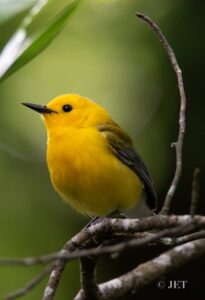

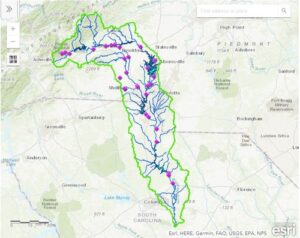
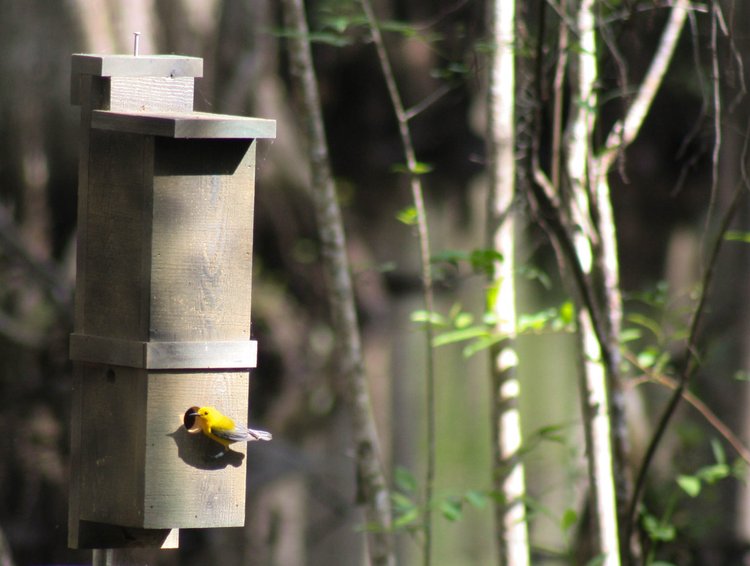
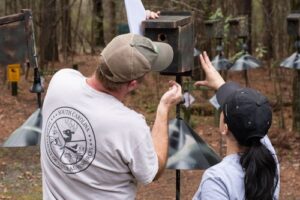
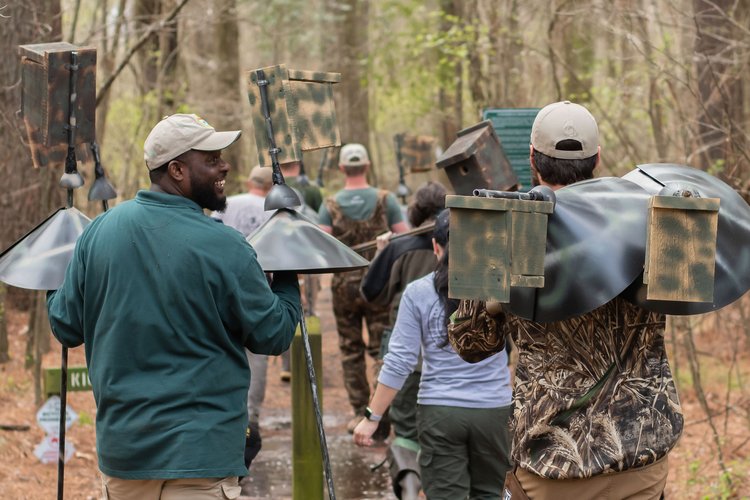

![]()

